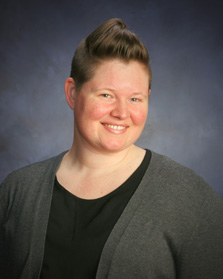Hannah Miller

Ph.D. Curriculum, Instruction, and Teacher Education Michigan State University, 2016
Ed.S. Curriculum & Instruction, Science Education University of Florida, 2011
M.A. Environmental Education Goshen College, 2010
B.A. Biology Rhodes College, 2001
About Hannah Miller
Hannah Miller is an associate professor of education at NVU-Johnson, where she is the co-director of the Inclusive Childhood Education program. Before returning to the United States to pursue her academic career in 2009, Dr. Miller lived in China where she taught science in formal elementary and secondary settings, and also English as a foreign language. During her time in China, she became interested in environmental education, which she has maintained as an academic pursuit throughout her career. Her dissertation used the agency/structure dialectic to examine how undergraduates envision the process of social change for sustainability and how they enact agency in local contexts to make the change they want to see in their own lives, their communities, and the world.